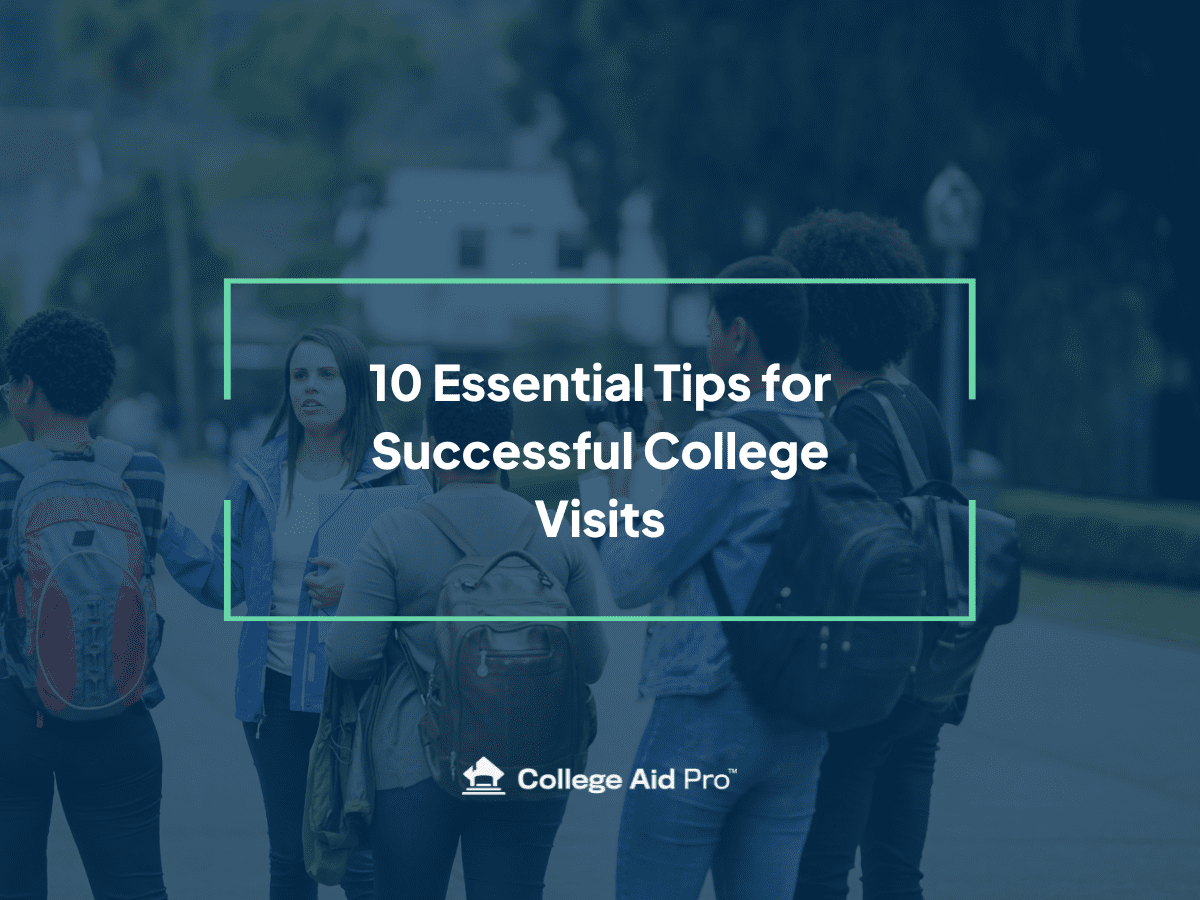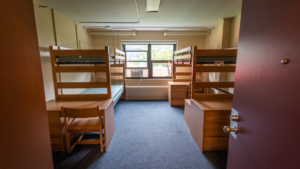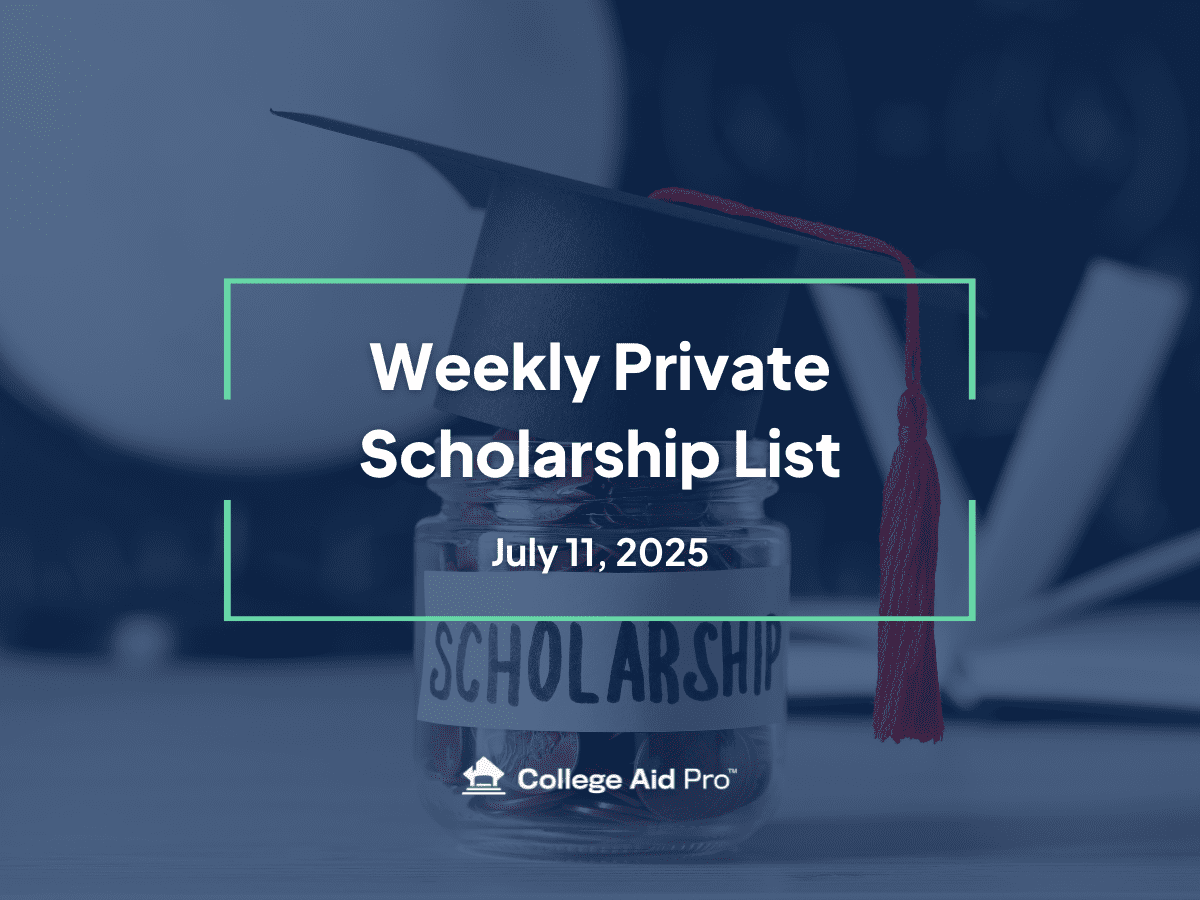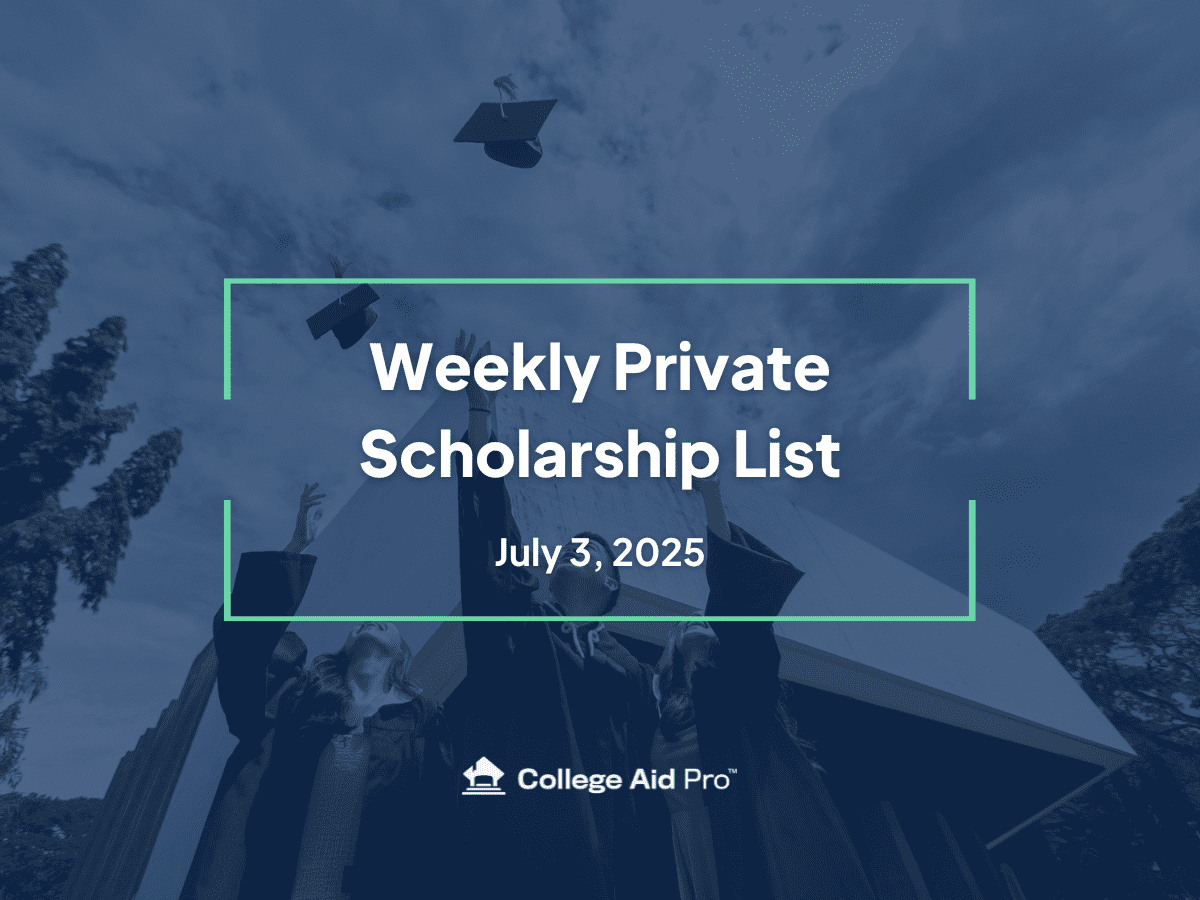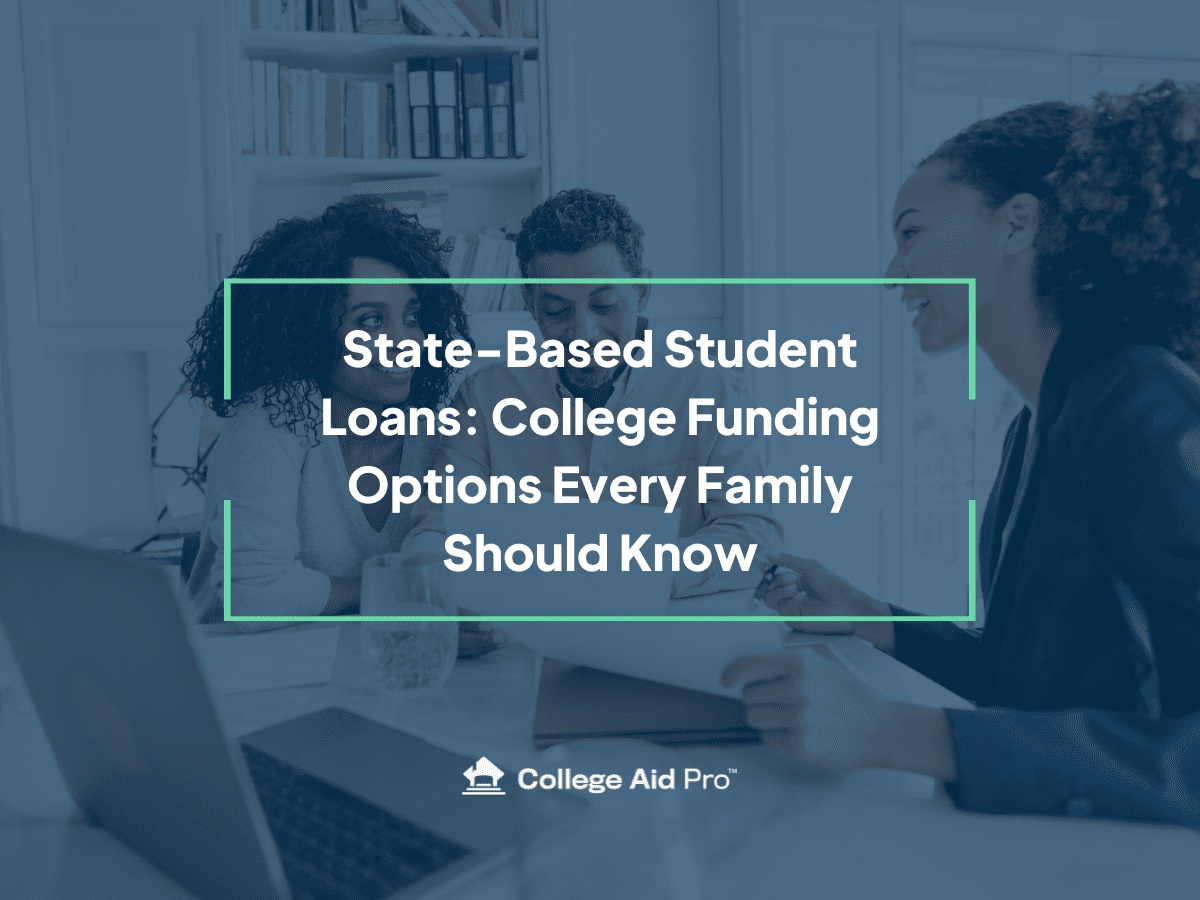10 Tips for Successful College Visits
As a family embarking on the college search journey, campus visits are essential for getting a feel for the schools on your list. At College Aid Pro, we know that finding the right fit – academically, socially, and financially – is crucial. That’s why we’ve compiled our top 10 tips to help you make the most of your college visits.

1. Set a Budget and Prioritize Affordability
Before you even start looking at colleges, it’s important to set a realistic budget for the total cost of attendance. At College Aid Pro, we encourage families to shop for colleges within their means, rather than hoping for scholarships or financial aid to cover exorbitant college prices. Determine what you can comfortably afford, and use this as a guide when creating your college list.
Not sure what that really means for you? We can help! We created a software platform that shows you exactly what YOUR family can expect to pay (or not pay) based on your finances and your student’s academic stats. You can create a free account here, and give it a try.
2. Research, Research, Research!
Once you have a list of potential schools, do your homework. Read up on each college’s academic programs, campus life, and financial aid offerings. This will help you formulate specific questions and identify areas you want to explore further during your visit.

3. Schedule A Campus Tour
While online research is valuable, nothing beats experiencing a college campus firsthand. Schedule a campus tour as part of your college visit to get a feel for the atmosphere, facilities, and student life. These tours are often given by current students.
Arrive early and take a self-guided walk around the campus to get a sense of the surroundings. Sometimes wandering the campus on your own will give you a better feel for what the college is like and who really goes to school there.
4. Attend An Information Session
Most colleges offer group information sessions led by admissions counselors. These sessions provide an overview of the school, admission requirements, and campus life. Be sure to attend one of these sessions to gather valuable information and ask questions.
These can be marketed as “preview days” or “accepted student days.” You’ll get a lot of information in a small amount of time.
5. Meet with Financial Aid Representatives
Don’t leave your college visit without meeting with a financial aid representative. Ask about the types of aid available, application deadlines, and any specific requirements or opportunities for scholarships or grants. Remember, affordability should be a top priority in your college search. Our MyCAP software can help you compare financial aid offers from different schools and tell you if you got the best deal possible, or if an appeal for more money is a good idea.

6. Talk to Current Students
Current students can offer invaluable insights into the college experience. Strike up conversations with students you encounter on campus, or better yet, arrange to meet with a student ambassador or tour guide. Ask about their academic experience, campus life, and any challenges they’ve faced.
When we went on college visits a few years ago, we found it very helpful to just sit on a bench somewhere in the heart of campus- maybe in the student center or outside near an academic building. It was apparent that we were visiting the campus from our name tags, maps, and college packets. Many students happily stopped to say hi and ask if we had questions on certain campuses.
On other campuses there was less interaction, but always a willingness to help give directions or answer a question, especially about the dining hall food!
7. Explore the Surrounding Area
While the campus itself is important, don’t forget to explore the surrounding area. Check out nearby neighborhoods, dining options, and recreational facilities. If the campus is in a city or urban area, how safe is the area outside of campus? If the campus is in a more rural or suburban area, are there things to do off-campus that don’t require transportation?
Knowing what’s around the college campus and who lives and frequents that area will give even more insight into the college. And you’ll get a better sense of what life might be like beyond the college gates.
8. Attend a Class or Campus Event
Sit in on a class to get a feel for the academic atmosphere. This is usually something that needs to be set up in advance, so reach out to your admissions representative at the school, to see if this is an option. Or check out the calendar of events for the day you plan on visiting, and attend a campus event to get a feel for the social atmosphere. This can provide valuable insights into the teaching styles, student engagement, and overall campus culture.
Sitting in the library or dining hall are also great places to watch and learn more about the academic and social moods of the school.
9. Housing Options: Your Home Away from Home
Housing significantly affects your college experience. Tour different housing options, from dorms to apartments, and consider factors like cost, location, and amenities.
Find out if you are required to live on campus for any specific amount of time and if you are guaranteed housing at all. If you are interested in living off campus, check with the housing office to see if they recommend specific locations or have any type of partnership for off-campus housing.
In addition make sure you have a transportation plan if you aren’t living on campus.
This will help you find a comfortable, conducive living situation for academic success and personal well-being.
10. Trust Your Instincts
Ultimately, trust your gut feeling about a college. If a school doesn’t feel like the right fit, despite its academic or social offerings, it’s okay to remove it from your list. The college experience is a significant investment, and you want to find a place where you can thrive personally, academically, and financially.
At College Aid Pro, we believe that families can find affordable college options without sacrificing quality. By following these top 10 tips, you’ll be well on your way to making informed decisions and finding the perfect college fit within your budget.
Remember, the goal is to find a college where your student will thrive academically, socially, and personally.
With the right preparation and mindset, each visit can bring you one step closer to making an informed, thoughtful decision. Here’s to finding the best college matches!

Frequently Asked Questions about College Visits
- How early should we start planning college visits?
Ideally, plan and begin visiting the junior year of high school to avoid last-minute rushes and ensure you have ample time to schedule multiple college visits.
However, it’s great to just expose your child to college campuses as early as freshman year of high school. There’s no pressure to make decisions and you are really just doing a high level, condensed visit by walking through campus and getting the “feel.” When we take a road trip somewhere we try and stop at a college campus just to take it in. I want my high schooler to see all different types of campuses and settings. - Can we do college visits virtually?
Yes, many colleges offer virtual tours and information sessions, which can be a great supplement to in-person visits, especially when traveling distances are prohibitive. - Should we do college visits even if we’re not sure of admission?
Absolutely! Visiting a range of colleges, including reach and safety schools, can help refine preferences and make more informed decisions when the time comes.
